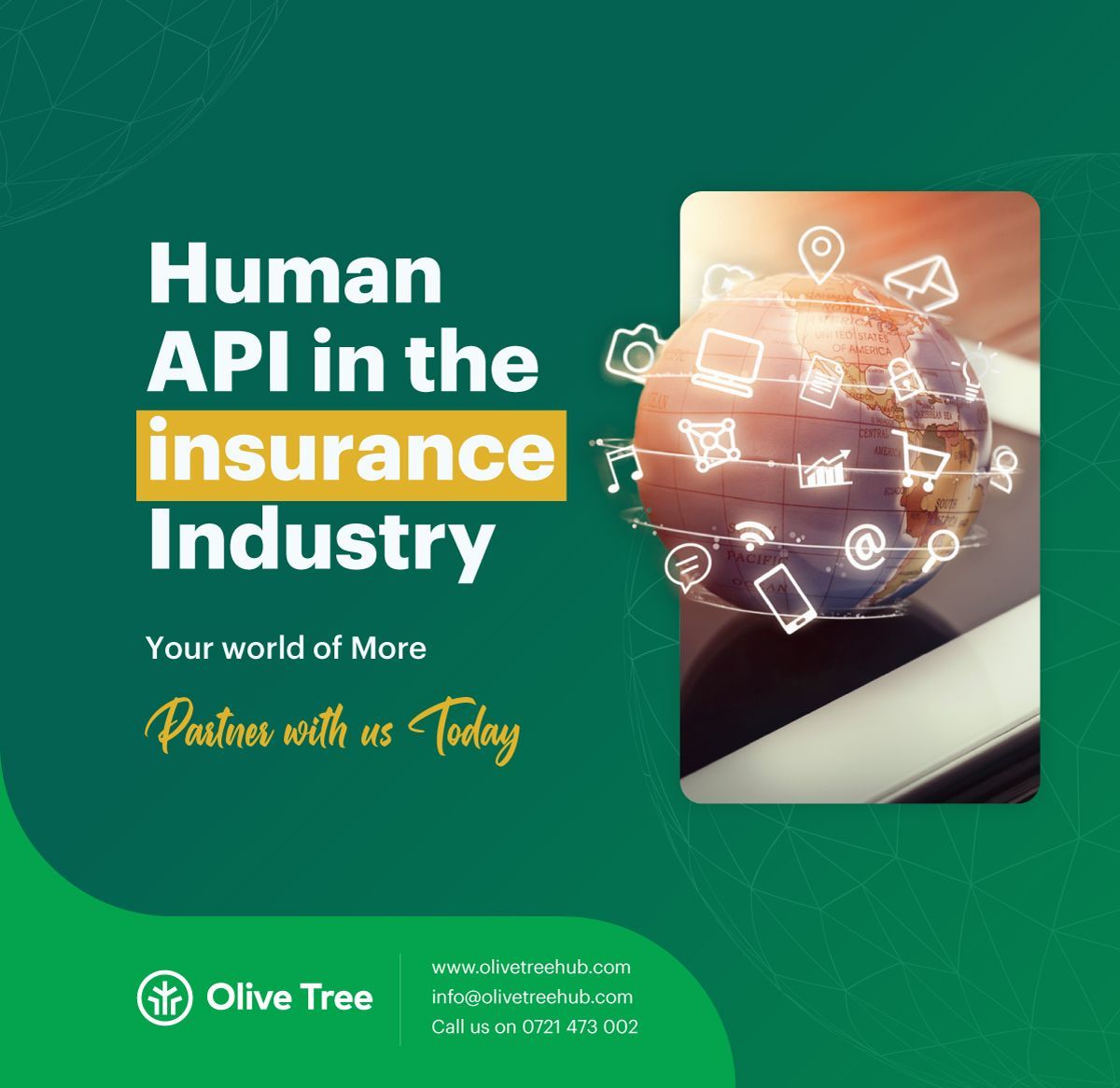Products & Updates
Everything you need to know about Human API in the Insurance Industry.
- October 4, 2023
“If you want something new, you have to stop doing something old” ― Peter Drucker
The life insurance application process in Africa can take from nine to twelve weeks. More than often, we’d like to get coverage as soon as possible — especially when our family’s financial health is at stake. This is where Human API comes in.
WHAT IS HUMAN API?
The platform has the potential to significantly speed up a life insurance application decision by pulling all of your medical records electronically, letting you even skip the medical exam. At present, only a handful of life insurance companies use Human API to underwrite applicants, and your doctors also have to use the platform for it to work.
If Human API isn’t available to you and you are unable to take the medical exam at this time, there are other options available to get coverage quickly and safely. Normally, part of the life insurance application is a thorough evaluation of your medical history and health. This includes questions about your background, a medical exam, and sometimes an attending physician’s statement. Traditionally, any requested records have to be mailed or faxed. The entire process usually takes a few weeks.
Human API eliminates the need for this process and enables insurers to fast-track the application process. Instead of requiring you to take an entirely new medical exam to gauge your health,applications using Human API pull information from your previous doctor’s visits using Electronic Health Records (EHR). Insurers have the information they need within 20 minutes and can make an application decision shortly after — getting your life insurance coverage almost immediately.
It is important to note that insurers won’t be able to pull your records without your consent — the entire process complies with HIPPA and requires your authorization. There are a couple of steps you’ll need to take to permit Human API access and allow insurers to use your previous medical records for underwriting:
- Read through your email invitation and terms and conditions
- Accept the terms and conditions disclosure
- Locate and enter your provider’s information
- Connect your account
- Permit your records to be released
Any of these records come directly from your medical provider and cannot be modified — by you or the Human API platform.
The caveat with Human API is that to use it in your life insurance application process, your prospective insurer must use it to gather medical records and your medical providers must already use the program to store data. If both parties don’t already participate, the Human API platform won’t be able to access your information and use it towards your application.
The information that Human API releases to your insurer will only be about your medical background — and legally, can only be used for its intended purpose. Insurers will likely have access to details about your medical visits, diagnoses, test and lab results, medications, and immunizations. You’ll be able to see any records that the insurer can access. If you decide you don’t want insurers to have access to your medical records, you can rescind access at any time — just know that those records then cannot be used for your life insurance application and you might need to take the medical exam to get coverage.
HUMAN API IN AFRICA
Currently, Africa’s insurance market stands at a 3% penetration rate, according to a McKinsey study in 2018 comparing six insurance regions on the continent. If the South African market is excluded, this number drops to a measly 1.12%. Unlike other parts of the world, most African insurance providers neglect the importance of tailored and affordable insurance products to the average African consumer.
Low insurance uptake in Africa is somewhat due to the traditional distribution of insurance policies. They customarily rely on brick-and-mortar channels to sell and process policies. This takes a long processing cycle and has poor customer satisfaction and higher distribution costs. Despite the very low levels of insurance penetration across Africa, the large numbers of un(der)insured and the potential to speed up access to them make the possibility of insurance growth strong. The demographics of the population and their changing behaviours in a world dominated by connected devices, the internet, and social media, all combine to make access easier and increase penetration levels.
Across all of Africa, the increased use of technology, on the back of the exponential growth of mobile phones, has significantly contributed to a large number of new customers and more tailored products. Mobile phones continue to provide access to new clients who have previously not purchased insurance. Aggregate data will help insurers to better understand risks and more accurately price products for these risks. Owning customer data that can be analyzed is therefore becoming more and more important. New, technology-enabled, data-driven insurance models are on the rise.
In its recent report, McKinsey said a rise in demand for digital solutions, as smartphone and affordable internets penetration deepens across the continent, has provided opportunities for the insurtechs to step in and offer innovative products. “Competition among players has already led to significant innovation and disruption in the African insurance market, with insurers leveraging technology to target specific segments or services and cut costs,” it said.
Innovative products launching across the continent appear to be more customer-centric, allowing micro-payments, flexible sign-ups and access to a wide range of services through mobile phones. Among those that are making it easier for clients to access and afford insurance services is Kenya’s Griffin Insurance, which allows clients to access all services through its mobile app, pay for car coverage in instalments and pause coverage when they travel overseas. The insurance firm is a sister company to Lami technologies, which raised $1.8 million in May 2021 year to scale API insurance platforms across Africa.
South Africa-based Pineapple is another growing insurtech that offers mobile-based services reducing paperwork and the need for office visits to sign up or process claims, aligning itself with the fastchanging customer behaviour. The firm, which recently extended its range of services to include car insurance, now provides its customers full-fledged insurance coverage — all underwritten by Old Mutual. Insurtech opportunities in sectors such as agriculture are also developing, with startups such as Oko, which operates in Mali and Uganda, providing automated insurance products based on satellite data and mobile payments. The startup, which raised $1.2 million earlier this year, de-risks farmers affected by extreme weather events like drought and floods.
Kenya’s Safaricom has already started some early moves into the space, in the form of a home insurance product covering items like electronics and furniture that it offers in partnership with Jubilee Insurance, a Kenyan underwriter. The service — which users can register and pay for via USSD (the mobile technology that is used for a variety of data services in Africa, which bypasses needing costly mobile data plans by relying on a more basic 2G network) — offers insurance covers that cost up to $13 a month with a maximum payout of $10,000.

